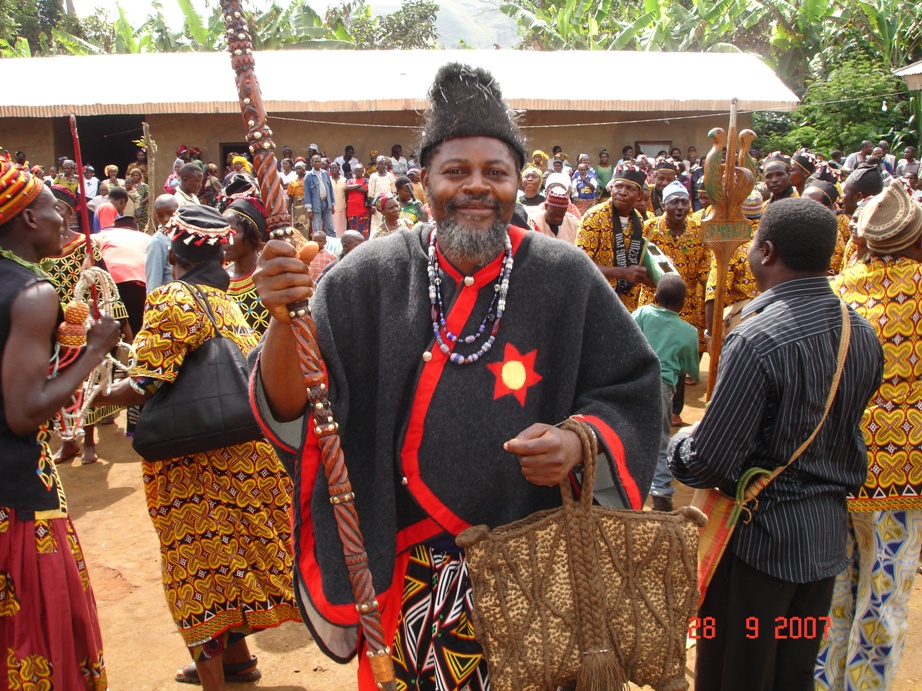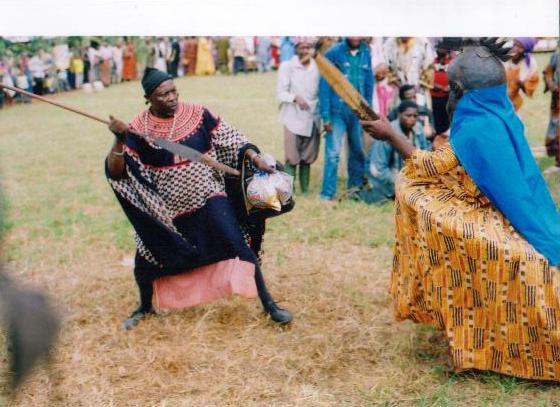TOURISM IN AWING FONDOM
“Neyishine ala’a Mbuwing” –Welcome to Awing
Welcome to smiling Awing, the land of glorious sunrise and sunset of ancient Traditions and mystic legends and of nature at its most picturesque, wildest and exquisite: but much more a land of friendly people. Awing is acknowledged as one of the most admired Fondoms of the North West Region due to its rich contemporary culture which blends values, norms material and spiritual tradition that cut across several ethnic groups with diverse ideas. There are several ceremonies in Awing, manifesting customs, social life, rituals, oral history and spiritual culture. If you have the opportunity to attend one, do. There are colourful, exuberant and fascinating insights into a culture that has been passed downs from generations. Whether your visit is to sample fast rush of one of its adventures, or to discover its vibrant palace, allow yourself to be seduced by its creativity. Don’t resist its beautiful wood carving in all its sizes, drums, masks, colourful fabrics, his majesty’s tiger carpet and woven calabashes, dye wall hangings, metal scriptures, bamboo furniture and basket.
Awing is one of Cameroon’s wonders. Her hilly undulating landscape creates a spectacular panorama. The Lake, the home of our gods is simply fantastic each time Nature’s sun cast its glows across the shimmering waters catching the distinctive half submerged trees, tourists are lulled to sleep. It provides ultimate tourist splendour to the inhabitants of Santa sub-division in the North West Region and Support a thriving agriculture industry. In many legend Lake Awing was and is still regarded as the home of gods which requires yearly appeasement to guarantee fertility, peace and love in the land.
While the lure of safari keeps you busy at the lake, in my capacity as the No.1 custodian of tradition, I am encouraging visitors to look beyond the Fondom’s famous scene and discover the sheer variety of landscape, wild life, human culture and experiences available in the home of the hospital. Down the valleys of the lake, you will zoom through the rolling savannah, tropical gallery forest home to our brothers and sisters the bororos and their vast investment in cattle breeding and much more.
HIS ROYAL MAJESTY - FON FOZOH II OF AWING
LAKE AWING - THE MYTH
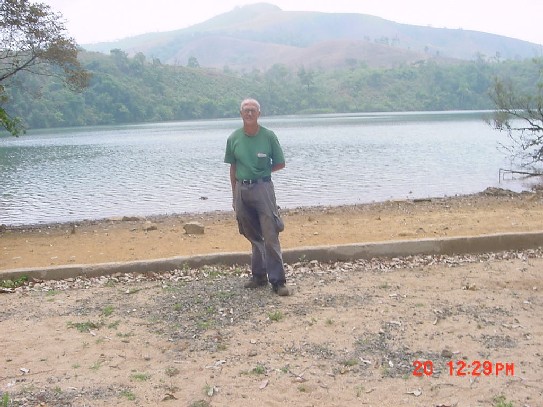
After hunger pushed Awing, Mbelee and Bamenyam from Widikum they came across the Ngemba speaking families in the Bamenda grass field. They first settled in Babajou in the West province and back to Ntarikon named after Tadkon their old site in Mankon. From here they migrated to Baba I in Ndop. After a brief stay they continued to present day Bambili location. From this site they moved to “Ngup’ near lake Bambili.
Awing and Bamenyam left Bambili behind and pursued their search for greener pasture that took them to “Aka’a” valley in contemporary Awing. From Aka’a they proceeded to Mbenjom, still a quarter in Awing yet soil infertility chased them to pack bag and baggage onward to Alameti. It is at this destination that the Bamenyam separated from Awing to Bamboutous in the West Province.
Awing later discovered during their stay in Alameti a large pond without an outlet nor inlet which was to be called Lake Bambulewing. Marvelled by their discovery the people came up with injunctions restraining any person from dumping thrash into the Lake. The water later vamoosed because certain women threw their dirty beds(menses) into it. It resurfaced later on it present site while the Awing people had been making frenzy efforts to situate it. Their hopelessness did not last for long when one memorable morning a certain man called Ta Mba’nka on returning from his raffia bush with a calabash of wine on his shoulder met a group of people. The leader begged a cup of wine from him. He generously offered without any reserve. After quenching his thirst, the old man told him “I thought you were going to be as malicious as the women who dumped their menstrual linen on us. However, to reward your kindness, I give you this whistle and bell, take them home and anytime you want to see us, climb up that hill and at the summit blow this whistle thrice and ring the bell thrice. We shall appear before you ready to attend to you and to receive all you will bring to us” This instructione hitherto has never changed. Pa Mba’nka rushed to the palace with alacrity, broke the news and unveiled the instruments before the Fon. The latter mobilized his etat major and they ascended the hill, followed the instructions by blowing and ringing the whistle and bell respectively. Sparkling water zoomed up like the first rays of morning sun. A soothsayer rose from the middle and led the Fon and his team back into the lake and performed rituals. After that the Fon and his delegation were instructed to go home without looking behind. They followed the order until they arrived Ta Mba’nka’s compound where a sumptuous feast was served to celebrate the rediscovery of their ancestors.
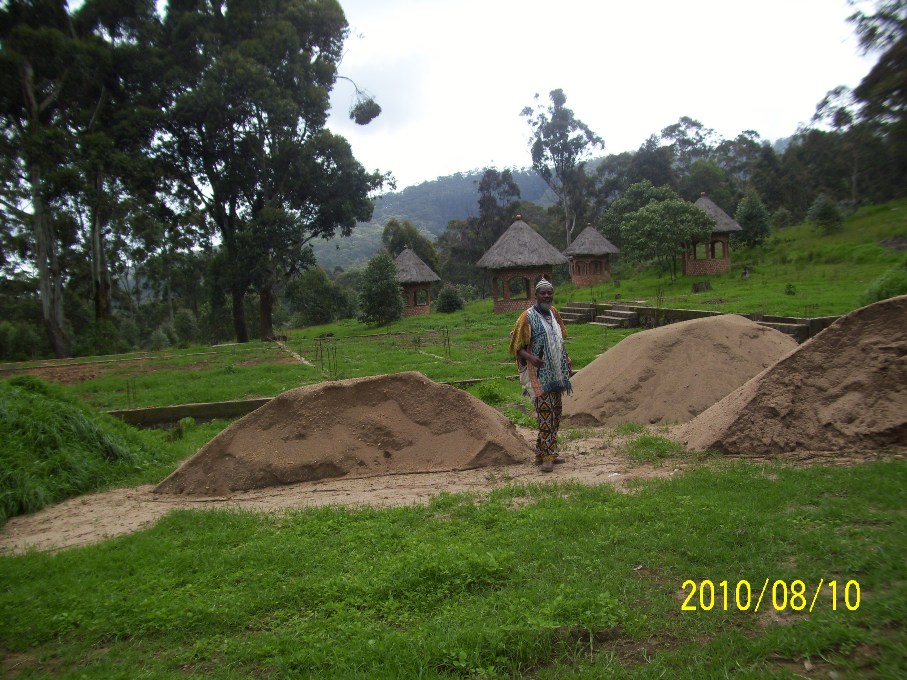
BUKAROS ARE BUILT AT THE TOURISTIC SITE OF THE LAKE WITH A MODERN RESTAURANT AT ADVANCED STAGE OF COMPLETION.
TO GET TO LAKE AWING
To reach Lake Awing you turn left at the Government Technical College, Santa from the Bamenda end. The winding road across rolling hills and valleys, also punctuated by artificial forest, covering a distance of some fifteen kilometres, takes you to this natural gift of Awing people. It is their shrine and a touristic treasure and potential you should not miss.
To savour its beauty and its quietude broken only by the “voices” of birds that sings over it, we should thank government for providing open field studded with some huts that provide pleasurable shelter.
The Awing and Ngemba people have awe for this mythical feature. You should not throw a stone into it, but you can watch and adore it. The cool and refreshing air blowing from and above its waters; especially around ten o’clock in the dry season cool can sooth the eyes and body. The effect is therapeutic. Don’t ask whether or not you can swim or bathe in it. Lake Awing is also a holiday resort, an area for academic excursions and religious retreats.
You can take advantage of its quictude to write reports and novels.
Lake Awing is a place to visit.
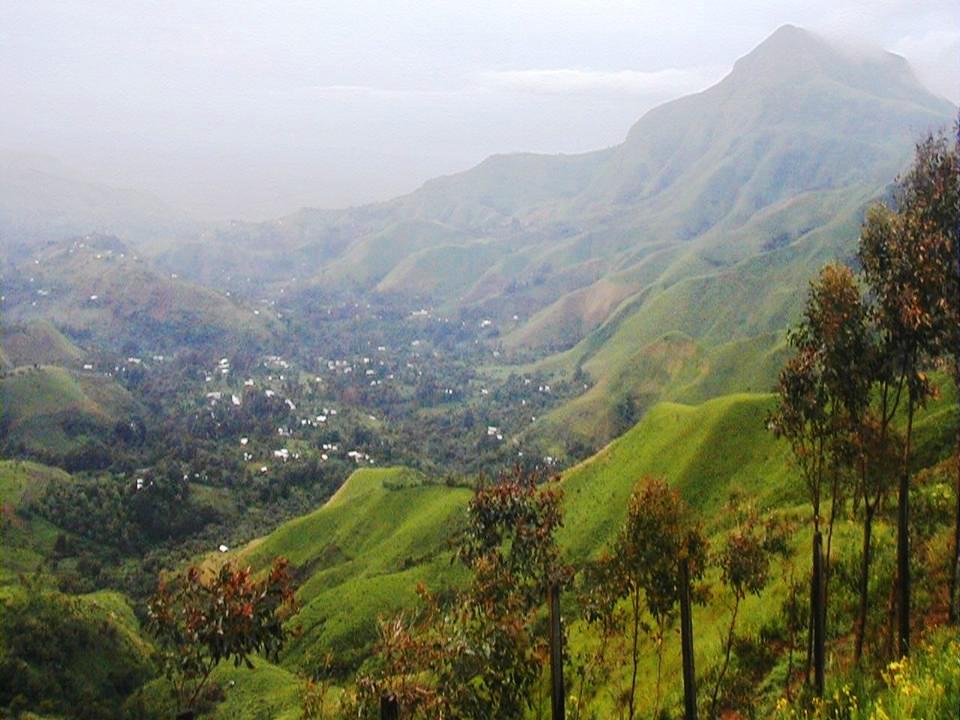 Lefo: This is the Fon on the right and the village on the left
Lefo: This is the Fon on the right and the village on the leftExploring new tourist frontiers
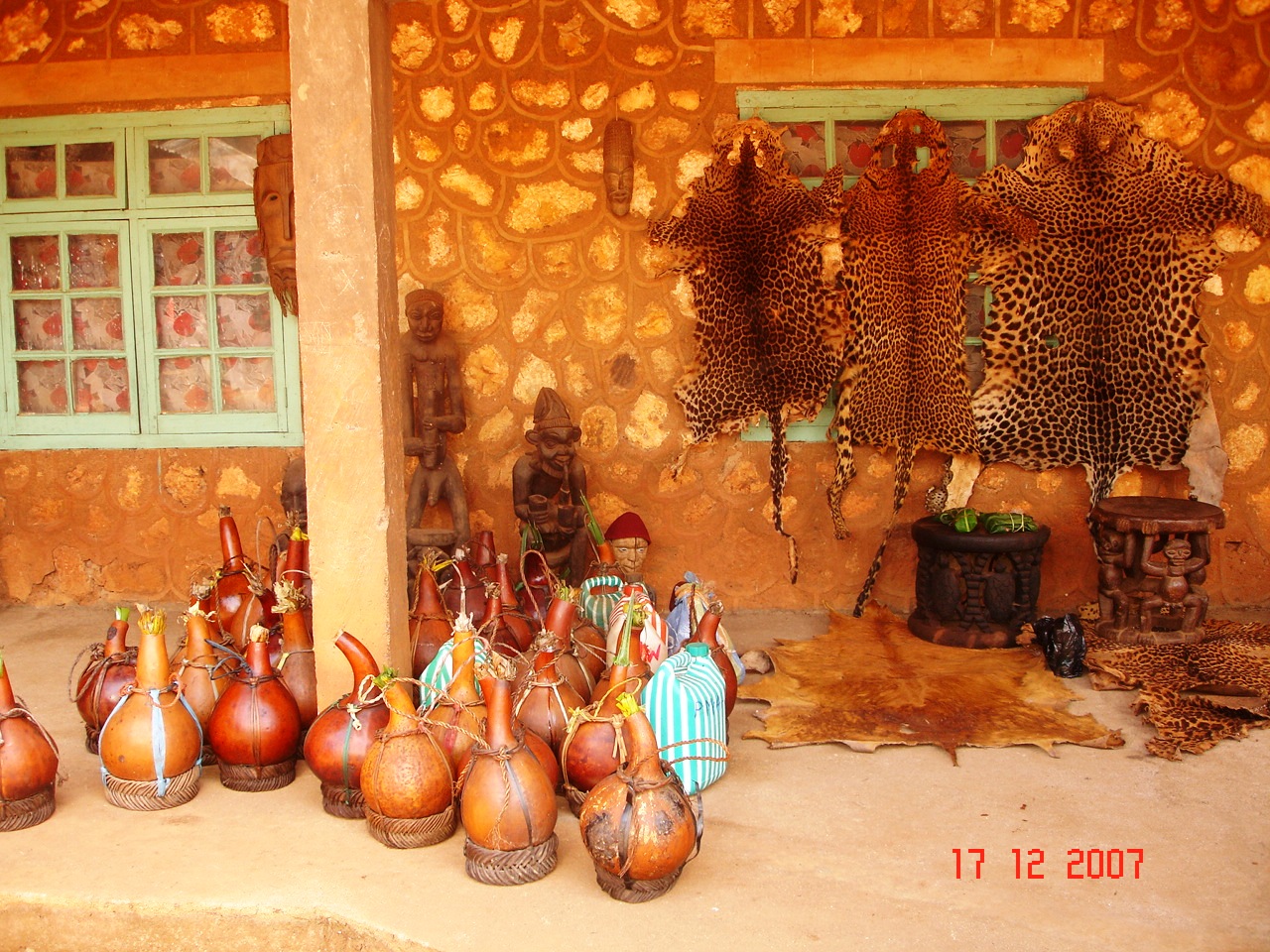 End of Year celebrations at the palace always end with lots of palm wine drinking as everybody coming to the palace is required to come with at least a calabash of palm wine.
End of Year celebrations at the palace always end with lots of palm wine drinking as everybody coming to the palace is required to come with at least a calabash of palm wine. 